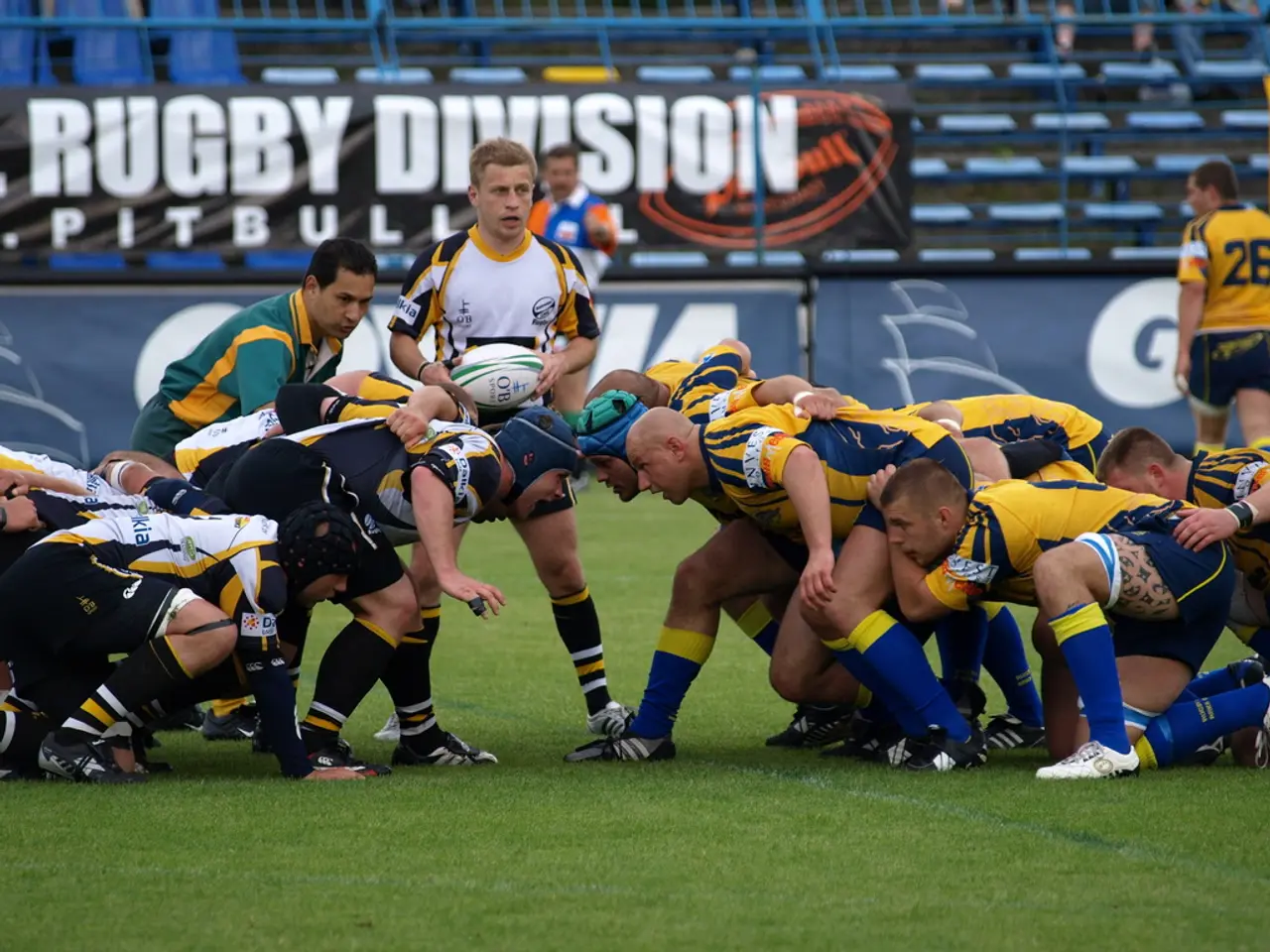Utilizing Rugby League as a Catalyst for Societal Cohesion and Diversity Engagement
Rugby League, a popular sport in Australia, is more than just a game. It serves as a powerful catalyst for social inclusion, bringing people together in unity and enhancing community bonds.
Youth development is a primary focus for many teams, and young people find a sense of belonging through participation in sports activities. Rugby League, in particular, fosters diversity by uniting players from different backgrounds and promoting integration.
One of the valuable lessons learned on the field is sportsmanship. Participants experience both winning and losing, teaching them grace and humility. This sense of belonging extends beyond the game, influencing the overall happiness of the community.
Community engagement is essential for overall well-being, with teams often participating in local events and solidifying their connection to the neighborhood. Through various occasions such as tournaments and matches, families and friends come together, creating a festive atmosphere where different cultures meet and celebrate.
Physical activity is crucial for maintaining good health. Engaging in sports like Rugby League provides numerous health benefits for individuals of all ages. Regular training sessions not only improve fitness but also enhance players' mental health.
Programs designed for youth participation in rugby serve as vital platforms for personal growth, helping young people gain numerous skills while engaging in this exciting sport. Clubs often provide platforms for learning values like teamwork and sportsmanship.
Clubs create mentorship programs, where young players often learn from older, experienced members. Coaches and volunteers play a pivotal role in fostering a supportive environment and instilling values that extend beyond the field.
Community engagement is central to these programs, bringing together diverse groups of participants. This interaction encourages acceptance and celebrates diversity. When teammates unite for a common goal, they not only hone skills but also cultivate friendships.
Rugby League also plays a significant role in urban regeneration and community strengthening. Clubs such as the Leigh Leopards and Hull KR demonstrate how rugby league clubs serve as anchors for local economic development and social wellbeing, turning stadium areas into vibrant community hubs and promoting social interaction and inclusion beyond sport itself.
The integration of various cultural backgrounds within these programs highlights the importance of acceptance. Celebrating differences helps to break down barriers. The influence of Rugby League on Australian society is profound, shaping cultural identity, promoting local pride, and fostering connections among communities.
In summary, Rugby League advances social inclusion mainly by: - Offering adapted games and inclusive training programs for people with disabilities or special needs. - Fostering community spirit and teamwork across different cultural, linguistic, and socioeconomic groups. - Acting as a driver of community regeneration and social cohesion through club-led initiatives. - Promoting inclusive participation, breaking social isolation, and enabling people to feel valued and connected through sport.
Rugby League creates a unique tapestry of individuals who come together for a common goal. Diversity in Rugby League not only enriches the game but also has a lasting impact on society. Empowerment comes from engaging in Rugby League, as players learn the importance of sportsmanship and making positive choices. Rugby League promotes social inclusion by creating an environment where everyone feels welcome, regardless of skill level or background.
Read also:
- Developing a Sales Strategy: Methods, Sample Plans, and Templates for Sales Plans
- Events that transpired on the night of August 13, 2025.
- Manchester-based entrepreneur Amman Ahmed propelled an unusual venture to an 8-digit empire, without external financing. This is the story of how he crafted a groundbreaking genre in the world of animal-oriented media, one growl and rhythm at a time.
- Cooking Quantity of Beef Corresponds to Citizens' Salaries - Analysts Disclose








